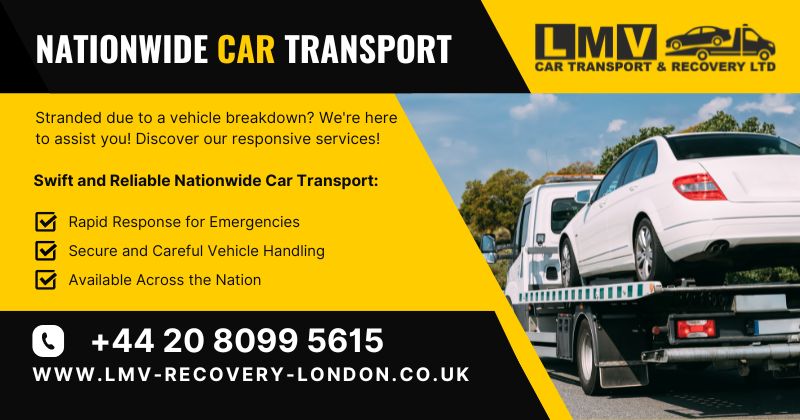20 Pro Facts For Choosing Car Transport Websites
Wiki Article
Top 10 Tips To Understand The Insurance Coverage Provided By A Car Transportation Company
Here are 10 suggestions to help you assess the car insurance coverage offered by transport services:
1. Carrier Insurance: Basics
Car transport companies are legally required to carry cargo insurance which covers vehicle damage during transport. Review the coverage type and limits of the policy.
2. Request a Certificate of Insurance
You may request a Certificate of Insurance in order to verify details of the policy, such as coverage amounts, expiration dates and risks covered.
3. Check your Liability Limits
Verify the liability coverage limit. The majority of companies offer coverage up to $250,000, but make sure to check that it is sufficient to cover all of the car's value.
4. Clarify What's Covered and What's Not
Examine the policy to determine exclusions. Certain policies might not cover damages caused by:
Nature-related events (storms and hail and flooding)
Inside the vehicle: personal items
Pre-existing conditions
5. It is possible to inquire about deductibles
Find out if the policy comes with a deductible, and who is accountable for it in the event of a claim. Some companies have no-deductible insurance policies.
6. Take into consideration an insurance supplemental
If you don't feel that the insurance coverage offered by your insurance provider is sufficient, you may get additional insurance through a third party service or directly from your personal insurance provider.
7. Pre-Transport Vehicle Inspection
It is important to request a Bill of Lading, which will provide a record of the car's condition. This is critical to file an insurance claim if damage occurs.
8. Check the Claims Process
You should ask about the claim procedure. For example what is the procedure for reporting damages and how long will claims have to be resolved? It should be a simple, efficient procedure.
9. Insure that you have coverage for non-operational vehicles
Verify that the vehicle's insurance covers it, because certain companies may charge additional or deny your car when it's not in operation.
10. Cross-Country vs. International Coverage
For international transport, verify that the insurance covers crossing-border transportation and any other requirements for shipping to overseas (e.g. damage caused by customs or loss).
Understanding the details of insurance coverage provided by the company can ensure that your vehicle is safe and that you don't incur any unanticipated costs. See the recommended our site on auto transport for more tips including auto shipping, best auto shipping services, car service transport, transport service car, auto & transportation, auto transport companies, auto shipping cost, car shipping cost, car freight companies, vehicle transport services and more.

Top 10 Tips On The Delivery Timeframes And Flexibility Of A Car Transport Service
Here are ten tips to help you determine the delivery and flexibility of a transport vehicle.
1. Standard Delivery Schedules
Delivery times are based on distance:
Transports within the area or locale can take anywhere from three working days.
The shipping of goods across the country could take anywhere from 4 to 10 working days.
2-4 weeks for international shipping. Check the estimated delivery date depending on your location.
2. You can request a specific delivery window
Instead of a particular date, most companies provide an estimated delivery time (e.g., 3-7 days). You must ensure that you are able to work within the timeframe. Especially during peak seasons.
3. Take into consideration Expedited Shipping Alternatives
You can ask for expedited or priority shipping if your delivery is urgent. This option offers quicker delivery but is usually more expensive.
4. Door-to-Door vs. Terminal-to-Terminal
Door-to-door service is more convenient and often faster than terminal-to-terminal. Terminal service can be flexible if you are unable to be able to receive the delivery.
5. Make sure you account for weather and traffic Delays
Conditions on the roads, weather or traffic delays can cause delivery delays. You should ask what the company's response to delays and how it communicates with you.
6. Flexible Pickup and Delivery Options
Select a company with flexibility should you want to change your delivery date or location. Certain companies allow you to make limited adjustments at no cost if they are notified in advance.
7. Seasonal and Peak Hour Aspects
It is likely that transportation times may be longer during the peak season or on holidays due to a high demand. Booking early is recommended to verify the schedule of the company during busy times.
8. Track and update in real-time
Select a provider that offers real-time tracking and frequent updates to be in a position to track your shipment's progress.
9. Clarify Guaranteed vs. Estimated Dates
Some companies charge an additional fee for guaranteeing dates for delivery, whereas others provide estimates only. Decide if the premium for a guaranteed delivery date is worth it based upon the requirements of your business.
10. Request Delivery After-Hours or on Weekends. Deliveries
Find out if the business offers the option of delivery after hours or on weekends for greater flexibility. This is particularly helpful if your schedule is tight or you're not able to be available during normal hours.
You can enjoy a smooth and stress-free experience when you travel by car by following these suggestions. See the recommended look at this on best car transport services for site info including automatic transport, car transport, vehicle freight, automobile transport services, auto shipping cost, top rated car shipping companies, car trailering, top rated car shipping, car shipping quotes, car freight shipping cost and more.

Top 10 Tips On Contract Clarity For Car Transport Service
Here are 10 ways to ensure that the contract is clear when you are choosing a transportation service:
1. Please Read the Entire Contract
It is important to go through the entire contract before you sign. Make sure you study the fine print in order to fully comprehend all terms and charges.
2. Transparent Pricing
Make sure the contract includes a detailed breakdown of all charges. This includes tolls and fuel charges as well as insurance fees, plus any additional charges (e.g. inoperable vehicles and expedited shipping).
3. Determine the type of service you require and delivery term
The contract should specify whether the service is door-to-door or terminal-to-terminal, along with estimated pickup and delivery dates or windows.
4. Define insurance coverage
Check that the contract clearly outlines the insurance coverage, which includes the limitations and exclusions. It must be clear that additional insurance is advised.
5. Cancellation & Refund Policy
Find a cancellation clause that clarifies the following:
How to unsubscribe.
Applicable fees.
Refund eligibility for deposits or prepayments.
6. Payment Methods
Verify the payment schedule (deposit and balance on delivery) and payment methods that are accepted (credit card or cash, bank transfer). Check whether there is a requirement to make a payment in full prior to delivery and in advance, unless it is justifiable.
7. Responsibilities and Liability
The contract must:
The responsibility of the transporter is to ensure safety for vehicles.
Responsibilities of the Customer
Liability in the case of damage and delay
8. Dispute Resolution Process
Find out if the contract contains the option of a dispute resolution process. It should specify how disputes are resolved (e.g. arbitration, mediation or legal action) and the timeframe for filing claims or complaints.
9. Pre-Transport and Post-Transport Inspection
Insure that the contract contains an inspection report for the vehicle (Bill of Lading) that documents the vehicle's state prior to and following transport. This document is essential to resolve claims for damages.
10. Guaranteed vs. Estimated Delivery Dates
The contract should state clearly if delivery dates are guaranteed or estimated, and what compensation is provided in the event of an unanticipated delay to delivery.
You can avoid misunderstandings by ensuring that the agreement is clear, comprehensive and unambiguous. This will enable you to have a more smooth and transparent experience when transporting your car.